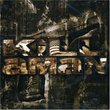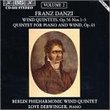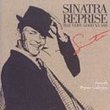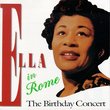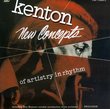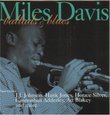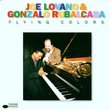| All Artists: Alfred Schnittke, Leif Segerstam, Royal Stockholm Philharmonic Orchestra, Carl-Axel Dominique Title: Schnittke: Symphony No. 1 Members Wishing: 1 Total Copies: 0 Label: Bis Release Date: 5/25/1994 Album Type: Import Genre: Classical Styles: Historical Periods, Modern, 20th, & 21st Century, Symphonies Number of Discs: 1 SwapaCD Credits: 1 UPC: 750582829222 |
Search - Alfred Schnittke, Leif Segerstam, Royal Stockholm Philharmonic Orchestra :: Schnittke: Symphony No. 1
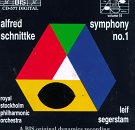 | Alfred Schnittke, Leif Segerstam, Royal Stockholm Philharmonic Orchestra Schnittke: Symphony No. 1 Genre: Classical
Schnittke (b. 1934) is a Russian composer living in Germany and his music comes from all over Europe, ranging back three centuries if it wants to. His Symphony 1 is a harrowing collage of European musical motifs (not act... more » |
Larger Image |
CD DetailsSynopsis
Amazon.com Schnittke (b. 1934) is a Russian composer living in Germany and his music comes from all over Europe, ranging back three centuries if it wants to. His Symphony 1 is a harrowing collage of European musical motifs (not actual quotes), but he's got the last three centuries and all those cultures thrown into the mix. The first movement is particularly brilliant with clashing bells, rising to an ecstatic pitch. The following movements each take their turn with Schnittke's alchemistry. Schnittke's a difficult composer to get to know, but this particular symphony (and this recording) is a good place to start. -- Paul Cook Similar CDs
Similarly Requested CDs
|
CD Reviews"you never know what he's gonna do" schonne | Shanghai, China | 09/14/2005 (5 out of 5 stars) "Rostropovich once said (as I here paraphrase): "Once familiar with the music by Shostakovich and Prokofiev, you know what's gonna come out of them. But with Schnittke you never know what he's gonna do the next bar!" Well, Schnittke is a devil. I've never heard so symphonized a symphony, yet he called it "UNsymphony" when he composed it. It is a collage. You can never expect what's to come up the very next moment. Cacophony succeeded by sweet swinging jazzy tunes, or street band rhythms, or Russian folk songs, or direct quote from Beethoven 5th or Baroque-style passages. Everything unabashedly concocted together like putting every kind of metal in an unmelting stove, and when you carry the stove away it clanks every kind of sounds. What attracts me to this very piece of music is all the legendary reports on it (all extracted from customer reviews on Symphony No.1 conducted by Polyansky): ==Quote 1== The first movement starts with the sound of chiming bells, before the musicians enter the hall one by one, improvising. When the conductor arrives, the music halts, only to start up again in a set of parodic episodes, including an improvisatory trombone cadenza. ==Quote 2== Be sure to listen to the samples before buying this music! If you're anything like me, you'll pass on this and find something else. What a cacophony of sound! Blech! ==Quote 3== I'd give 200 stars if that were possible! ==End of Quotes== In short, I was simply curious about this very piece. I've been wondering about what Schnittke would do, after listening to some of the most profound, the most uncompromising, the most evocative (of human suffering), the most baptizing music from this composer. (Symphonies No.2, No.8, Requiem, Peer Gynt [Ballet], String Trio, Piano Quintet, Concerto for Three) I used up my imagination before listening to this Symphony No.1 only to find myself easily beaten by the composer, be him genius or devil. The first movement does start with the sound of chiming bells, and the musicians do enter the hall one by one, and they do improvise on the spot. But what is miracle is that although it is a mess, it is a perfect mess. I wonder whether it is arranged this way or not, the musicians come on the stage section after section, therefore there are perfect layers of orchestral sound, as if the composer intended the texture on the score. When the conductor enters the scene, the audience claps. The music stops and in a short while starts again, as cacophonic as ever. The audience, therefore, becomes part of the music. You just don't feel they're interrupting the music-making process. Then the symphony goes on with collages. Bits and pieces of incompatible styles of music patched together, each turning into the next with little or no transition. The orchestra is required to be virtuosic, because a noisy marching street band would be succeeded by dissonance that heads nowhere. The first movement climaxes in a quote of the beginning of the 4th movement of Beethoven's 5th Symphony, but with a devil hand the triumph is turned schizophrenic; the music collapses and murmurs to the end. The majority of the second movement goes in the same fashion as the first movement as if the composer is gaming around. Russian folk songs, cocaphony and jazz are juxtaposed, and it climaxes in a long passage of a little sweet, a little sad jazz duo (piano + violin, but I'd rather call it a piano solo accompanied by a violin), in sharp contrast with the first movement. The third and fourth movement are more serious -- I mean, the composer no longer jokes around. The third movement is filled with agony typical of Schnittke, sometimes densely textured, sometimes sparsely orchestrated with the strings murmuring in the background like ghosts. I didn't detect the transition of the 3rd and 4th movement. But the majority of the first half of the 4th movement is dominated with ever-growing tension between a coarse (even idiotic) march and agonizing, urgent dissonance. All is stopped by a powerful organ crash, as if the God suddenly appears and decrees. The organ, concealed for nearly 50 minutes, now appears with unshakable authority, and dominates since. There is an extremely long passage of a dissonant organ chord, on which things are played like improvised, including smaller bits and pieces of Russian folk melodies and street marches. Again everything is crashed, and we hear bells chiming again as is in the very beginning (before the conductor appears), and before the music revives again, a strong tutti crescendo ends the symphony, abruptly yet perfectly. The audience screamed immediately after the crescendo ends. Now that the symphony ends, I feel that I've been to everywhere I can be, I've seen everything, living or dead, that I'm able to see, I've felt every emotion I can feel, I've lived every life I can possibly live. The experience is strangely evocative. It constantly reminds me of a diversity of things, people and artistic works. Paintings by Hieronymus Bosch and Picasso appear and go, but their horrifying details remain as the music flows; Pasolini's film "Arabian Nights" is reminded because of the organ crash; and numerous other impressions, though minor, are evoked. Be it a joke or not, for me, I'm simply forced to take it seriously and happily baffled by the mystery that such an (un)symphony should be so overwhelming. " Great recording villegem | canada | 01/15/2003 (5 out of 5 stars) "Intense, prophetic! This recording is better than the Chandos recent recording of the piece. The Jazz impro works nicely too.
"The great Russian artists were immersed in gloom, but they had the strength to accept it and rest themselves through this gloom, for they believed in the light" Alexander Blok" |

 Track Listings (4) - Disc #1
Track Listings (4) - Disc #1
